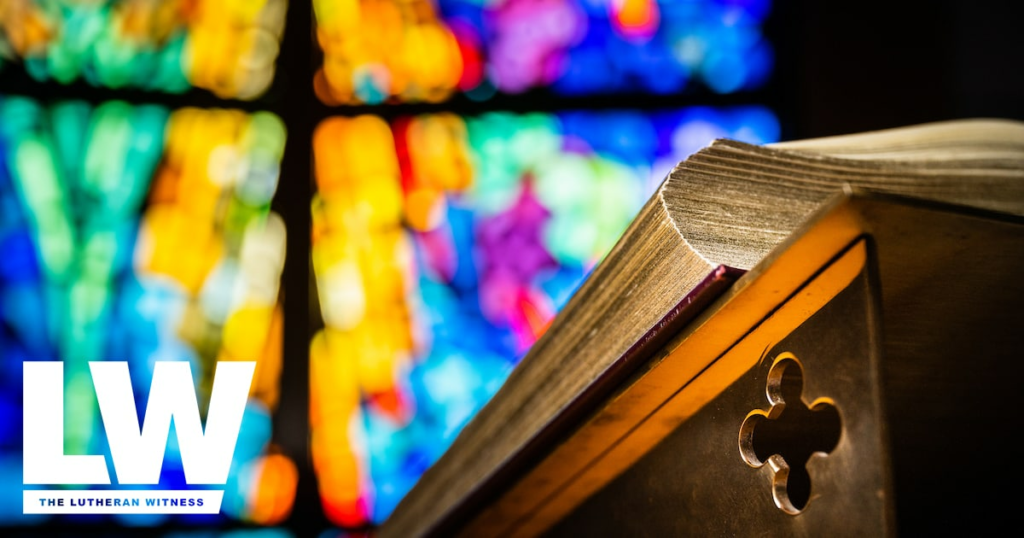by Rev. Dr. Jerald C. Joersz
Q: Why is the archangel Michael referred to as St. Michael? I thought that only believers in Christ are called saints, on earth and in heaven.
A: Some historicaland biblical background may help to explain why the archangel Michael has been remembered traditionally as St. Michael.
For centuries, Christians throughout the world have observed St. Michael and All Angels on Sept. 29. On that day in the fifth century A.D., a small basilica six miles from Rome became the first known church dedicated in honor of Michael. Observance of the feast of the archangel St. Michael gradually spread throughout the West. In regions of Europe, he was honored as a “warrior saint,” but the origin of the specific title “saint” is obscure.
During the Reformation, Lutherans also observed the feast, but in their Confessions they rejected honoring angels in idola- trous ways, such as praying to them and worshiping or adoring them (Smalcald Articles II, ii, 2628). The Lutheran reformer Philipp Melanchthon wrote a hymn for St. Michael and All Angels titled “Lord God, to Thee We Give All Praise” that praises God for creating angels to guard and keep His “little flock” on earth” (LSB 522).
The Bible mentions the angel Michael (whose Hebrew name means “Who is like God?”) five times. In Daniel 10, he is called one of Gods “chief princes” (v. 13) who stands by Gods side (v. 21). God put him in charge of His people to protect them in times of trouble (12:1). In Jude 9, he opposes Satan, and in Rev. 12:7, he and his angels fight against Satan and his cohorts. In Jewish writings around the time of the New Testament, Michael played a prominent role as the protector of Gods people.
Calling Michael “Saint” likely has something to do with our understanding of the word holy in Scripture. The word holy, in a basic sense, refers to those who are dedicated to God and consecrated to His service. The Old Testament and a passage in the New Testament call angels “holy ones” (Deut. 33:2;Ps. 89:5, 7; Jude 14). Interestingly, the King James Version translates the phrase “holy ones” as “saints.” The English word saint derives from a Latin word meaning “to make sacred.” And, of course, the term saint is applied not only to angels but to Gods people as well since they are a “holy people,” the objects of Gods forgiving love and chosen for service to God (Deut. 7:6; 33:3 and numerous references in Paul’s epistles for believers in Christ).
Thus, it is proper to speak of St. Michael. We do so, however, from a perspective different than when we call Christians (living and dead) saints. Angels had an intense interest in our redemption in Christ (1 Pet. 1:12), but they themselves did not need or experience it. We thank God for His holy angels, but we praise Him above all for making us holy by His justifying grace (Titus 3:47).
—
Send your questions to Q & A, The Lutheran Witness, 1333 S. Kirkwood Road, St. Louis, MO 63122-7295; or send them via email to lutheran.witness@lcms.org. Please include your name and address. While we look for questions that have broad interest among our readers, no question is unimportant. Unfortunately, the volume of questions we receive makes it impossible to answer every question individually.
About the Author: The Rev. Dr. Jerald C. Joersz was formerly an associate executive director of the LCMS Commission on Theology and Church Relations.





